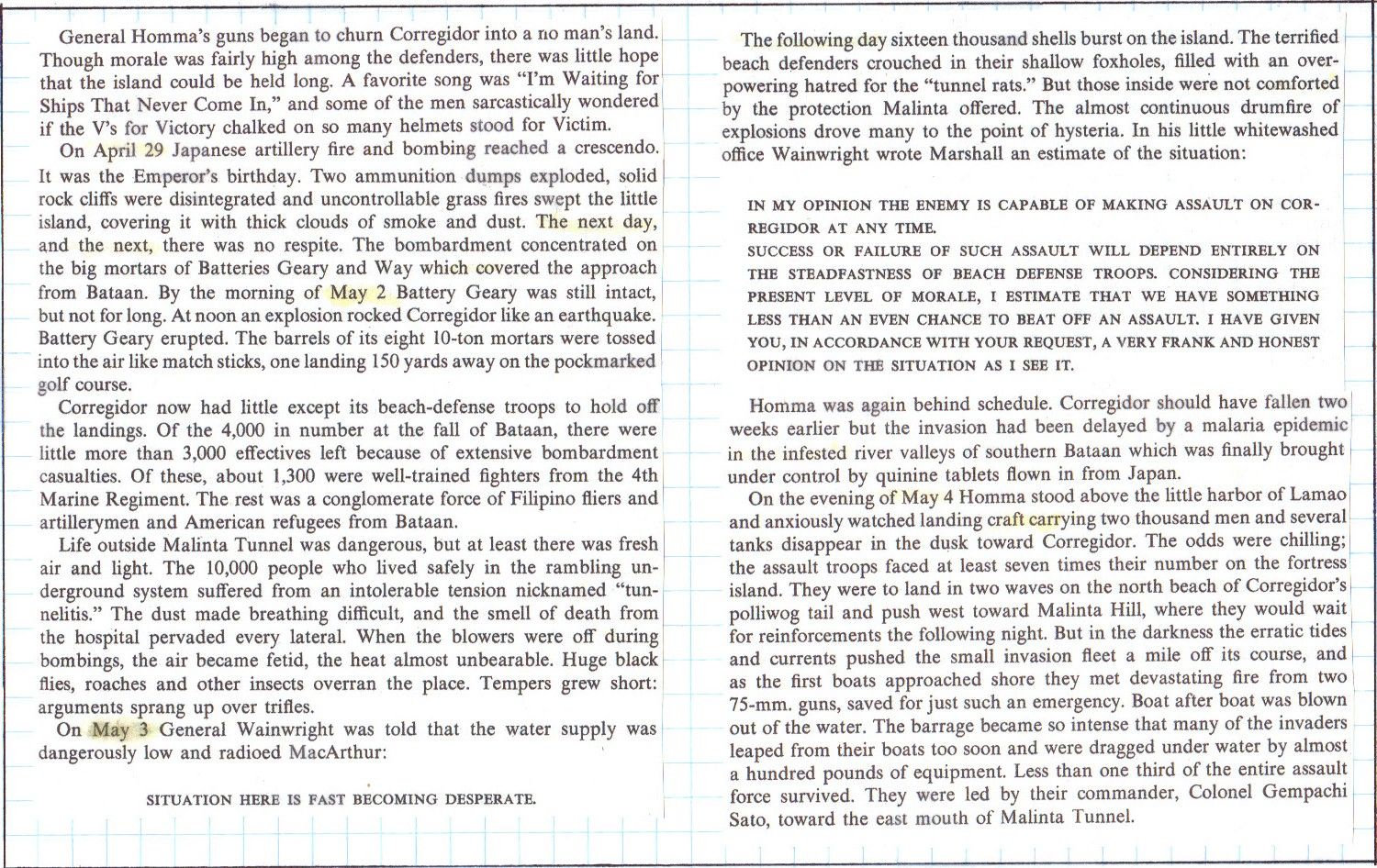
John Toland, The Rising Sun: The Decline and Fall of the Japanese Empire, 1936-1945
The News of the Week in Review
Twenty News Questions – 6
Loss of Burma Means a Big Setback in Asia (Baldwin) – 7
Western Europe’s Bombing Grounds (map) – 8
R.A.F. Offensive Found Gaining Its Objectives (Daniell) – 9
Political Commissars Aid Red Army (Parker) – 10
A Survey of National Sentiment on Our All-Out War Effort (by the usual regional correspondents) – 11-15
Editorial Page – 16-21
Springtime for Hitler
China Still Stands
Patent Reform
The Anti-Inflation Program
Poland’s Day
Apple Blossom Time
Topics of the Times
Answers to Twenty News Questions
Causes Held Largely Ignored in President’s Programs (letter)
Men’s Dress Criticized (letter)
Scholar (poem)
The New York Times Book Review
Victory Through Air Power, by Major Alexander de Seversky. Reviewed by Fletcher Platt – 22-23
wow...what a story!
“SPRINGTIME FOR HITLER”
...actual title of article!
http://corregidor.org/chs_army/morton_03.htm#thepreassaultbombardment
Sunday, 3 May, was a repetition of the day before. There were five air-raid alarms during the day, with the planes again concentrating of James Ravine and Kindley Field. The enemy aircraft over the field met no fire from the antiaircraft batteries, whose guns and height finders had already been damaged or destroyed. Artillery fire during the day was so heavy that the dust blinded the spotters observing counterbattery fire. “Situation here is fast becoming desperate,” Wainwright reported to General MacArthur at the end of the day’s action. “With artillery that outranges anything we have except two guns, he [the enemy] keeps up a terrific bombardment as well as aerial bombing.”[45]
That night an American submarine on patrol in the South China Sea stopped outside the mine channel for an hour before returning to Australia for torpedoes. It took out 25 passengers, all that could be crowded into its tight interior. Among the passengers were Colonel Constant Irwin, who carried a complete roster of all Army, Navy, and Marine personnel still alive; Col. Royal G. Jenks, a finance officer, with financial accounts; Col. Milton A. Hill, the inspector general, 3 other Army and 6 Navy officers, and about 13 nurses. Included in the cargo sent from Corregidor were several bags of mail, the last to go out of the Philippines, and “many USAFFE and USFIP records and orders.”[46]